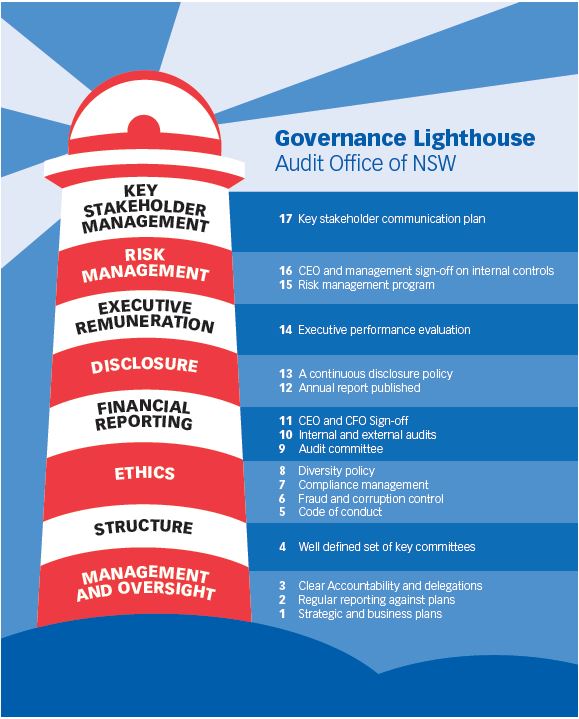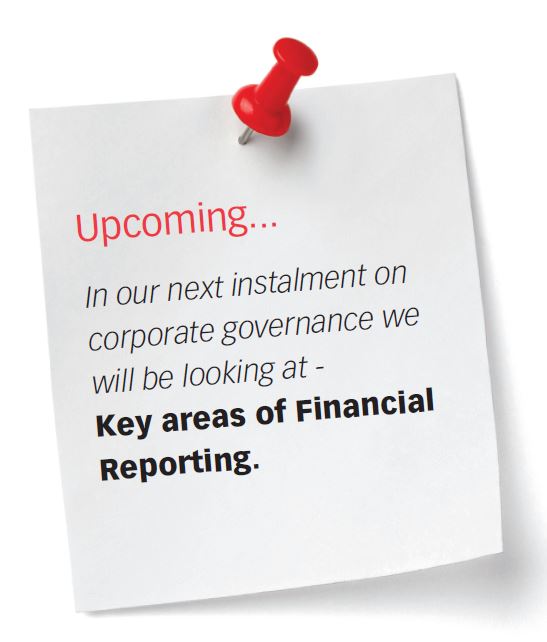Our experience as auditors and business advisors for over 100 independent schools confirms the need for efficient and effective corporate governance. We have experienced the problems first hand resulting from a lack of effective governance. We have been able to recognise and assist our clients in addressing governance issues before they have got out of hand.
In this instalment, we will be looking at the fundamental principles of ‘Key Stakeholder Management’ in the independent school sector.
Before discussing the key details in stakeholder management, we will briefly recap on the framework used in building a robust corporate governance approach.
In the first of our series we introduced the framework used by the Audit Office of NSW (“the Audit Office”). They have
successfully taken the 8 principles set out by the Australian Stock Exchange and applied them to the Not- For-Profit Sector. The Audit Office has taken the core principles and has summarised them in a clear and concise way in what they term the Governance Lighthouse.
The fundamental proposition of the Lighthouse is the notion that good governance shines a guiding light on how to run an organisation and lead it into the future. The lighthouse model is equally relevant to independent schools and provides a readily identifiable pictorial summary that we can all relate to. The governance model and its key attributes are shown on the right.
In respect of stakeholder management, a key strategic focus for all independent schools is adding stakeholder value. In the industry, key stakeholders are numerous and varied and include:
- Students
- Staff
- The Board
- Parents both past and present
- Grandparents
- Alumni
- Funders both in the public and private sector
- The community
- Professional associations
- Regulatory agencies
- The media
Any strategic conversations needs to include the various stakeholders who both impact the school and who are impacted by the school.
Stakeholders will impact the school in different ways and this also needs to be taken into account.
Maintaining good stakeholder relations is key to achieving positive outcomes for the school. Developing these relations involves being able to assess the ‘feeling’ of various stakeholder segments. This can be done a number of ways including questionnaires, focus groups, advisory committees and feasibility studies. Schools may decide to use a third party consultant or marketing firm to assist with this process. It is imperative that stakeholders are able to provide their feedback.
Effective stakeholder engagement will result in a number of benefits including:
- Higher quality decision making
- Increased efficiency and effectiveness of service delivery
- Improved risk management practices
- Streamlined program and project development processes
- Enhanced community confidence in projects
Any successful stakeholder engagement process will start with a communication plan. Senior management and the Board will need to devote the time and effort in developing this plan. Once in place it will be necessary to revisit on a yearly basis.
Here at Nexia Australia we work collaboratively with our clients in being one of the building blocks in the governance model.
If you require any guidance on how this process applies to your organisation then please contact one of our specialist school advisors.

Andrew Hoffmann, Partner - Sydney

